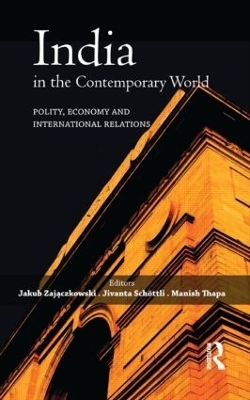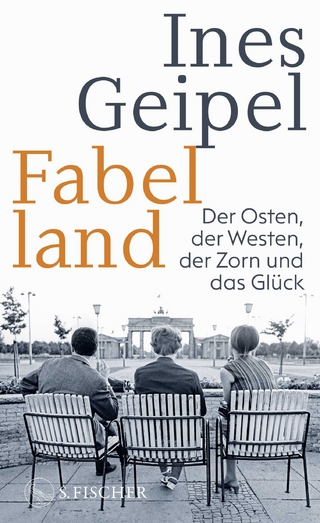
India in the Contemporary World
Routledge India (Verlag)
978-0-415-81213-9 (ISBN)
This book brings together Indian and European perspectives on India’s polity, economy and international strategy. It explores internal, regional and global determinants shaping India’s status, position and goals in the early 21st century. Through an array of methodological and theoretical approaches, it presents debates on democracy, economic development, foreign and security policy, and the course of India–European Union relations. The volume will prove invaluable to scholars and students of international relations, politics, economics, history, and development studies, as well as policy makers and economists.
Jakub Zajączkowski is Assistant Professor at the Institute of International Relations, Vice-Director of the Institute for Research and International Cooperation, and Chairperson of the Centre for Contemporary India Research and Studies, University of Warsaw, Poland, Erasmus Coordinator, and Visiting Professor in over 20 universities. Jivanta Schöttli is Lecturer at the Department of Political Science, South Asia Institute, Heidelberg University, Germany, member of the Heidelberg University Cluster of Excellence, and Deputy Editor of Heidelberg Papers in South Asian and Comparative Politics (HPSACP). Manish Thapa is Assistant Professor at the Department of Conflict, Peace and Development Studies, Tribhuvan University, Nepal, and visiting faculty at the Institute of International Relations, University of Warsaw, Poland.
Acknowledgments. Introduction. Part I. Culture, Society and Democracy 1. India’s Counterfactual Democracy: Institutional Innovation, Political Capital and the Promise of Resilience Subrata K. Mitra 2. Elections and Voting in India K.C. Suri 3. Territory and Indian Identity: Postcolonial and Postmodern Perspectives Jyotirmaya Tripathy 4. The Paradox of Doctrinaire Violence and Non-violence Sudarsan Padmanabhan 5. Cultural Paradigm Analysis: A Comparison of India and Europe Zuzana Lehmannová Part II. Economy and Development: Domestic and International Dimensions 6. The Service Sector in the Indian Economy Anna Wróbel 7. Alter-globalisation in India: Origins, Evolution and Significance Justyna Nakonieczna 8. The Indian Banking System: Reforms and Beyond Meenakshi Rajeev and H.P. Mahesh Part III. Foreign and Security Policy 9. India’s Evolving Foreign Policy in a Regional Perspective Shantanu Chakrabarti 10. India–Pakistan Relations and the Role of China Jivanta Schöttli 11. India–China Encroachment and Positioning in South East Asia Johannes Dragsbaek Schmidt 12. India’s Foreign Policy Following the End of the Cold War Jakub Zajączkowski 13. Indian Approaches to Security and Conflict Resolution John Doyle 14. Environmental Security in India Antonio Marquina 15. An Evolving Partnership between India and the US: Opportunities, Convergences and Challenges Chintamani Mahapatra and Monish Tourangbam Part IV. India and the EU: Comparison, Interaction and Exchange 16. Perceptions and Visibility of the European Union in India: A Study of the Media, Elites and Public Opinion Rajendra K. Jain and Shreya Pandey 17. India–EU and the Afghanistan Challenge Gulshan Sachdeva 18. The EU–India Free Trade Agreement Negotiations: Economic Dimensions Bishwanath Goldar 19. The EU–India Free Trade Agreement Negotiations: Political Concerns and Social Reaction Idesbald Goddeeris and Kalyani Unkule. Bibliography. About the Editors. Notes on Contributors. Index
| Erscheint lt. Verlag | 3.6.2014 |
|---|---|
| Verlagsort | London |
| Sprache | englisch |
| Maße | 138 x 216 mm |
| Gewicht | 1160 g |
| Themenwelt | Geschichte ► Allgemeine Geschichte ► Zeitgeschichte |
| Geisteswissenschaften ► Geschichte ► Regional- / Ländergeschichte | |
| Sozialwissenschaften ► Soziologie ► Spezielle Soziologien | |
| ISBN-10 | 0-415-81213-5 / 0415812135 |
| ISBN-13 | 978-0-415-81213-9 / 9780415812139 |
| Zustand | Neuware |
| Haben Sie eine Frage zum Produkt? |
aus dem Bereich


